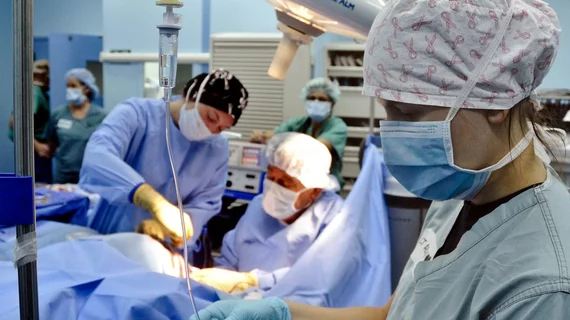Not so fast with that massive nursing hire, says hospital group
A study backing a bill that would greatly increase nurse staffing in Illinois hospitals by mandating certain nurse-to-patient ratios has drawn heat from the Illinois Health and Hospital Association (IHA).
In a statement sent directly to news outlets, including HealthExec, the IHA questioned the motives of the study’s publisher, the Illinois Economic Policy Institute (ILEPI).
“This ‘study’ was conducted by a think tank funded solely by organized labor whose board of directors is comprised of a who’s who of organized labor leaders, including the head of the Illinois Nurses Association, which is pushing for nurse staffing ratios,” the IHA said.
Commenting on the ILEPI’s assertion that hospitals would spend $2 billion to eventually save $1.4 billion—the aim being to retain nurses, ward off readmissions and decrease time in costly ICUs—the IHA said there’s no conclusive evidence that ratios improve patient outcomes.
“Even this deeply flawed report confirms that the nurse staffing ratios proposal comes with a huge price tag which will place at risk hospitals that are struggling financially, especially safety net hospitals and critical access hospitals,” the IHA added.
In local coverage of the clash, The Times Weekly of metro Chicago noted that California remains the only state with required nurse-to-patient ratios. The newspaper added that, last fall, Massachusetts voters handily rejected nurse staffing ratios, 70% to 30%.
The fight in Illinois is sure to continue until the legislation either passes or dies. To follow developments in the discussion, check the organizations’ respective websites, IllinoisEPI.org and Team-IHA.org.

